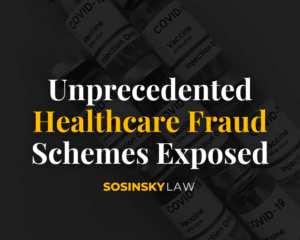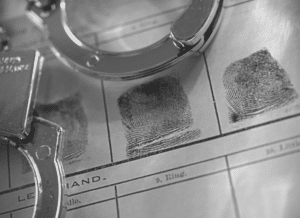NYC Illegal Gambling Lawyer
Illegal Gambling Defense Lawyer In New York City
Gambling is a big business in the United States. And here in New York, it is about to get even bigger. When gambling or betting takes place at a state-licensed casino or racetrack or via a state-licensed internet gambling platform, it is perfectly lawful both for the player and operator of the gaming business. When, on the other hand, gambling or wagering takes place in non-state sanctioned locales or is operated by non-licensed individuals or entities, those running these illegal operations may come into conflict with New York’s criminal laws prohibiting illegal gambling. Worse yet, for those involved in operating ongoing and lucrative illegal gambling businesses, they could find themselves accused of the crime of Enterprise Corruption, a high-level felony offense punishable by a mandatory minimum prison sentence. Gambling charges are serious matters. Don’t roll the dice with just any lawyer, speak with a specialized NYC illegal gambling lawyer today.
If you or a loved one has come under investigation for a gambling crime here in New York, you will need to have an aggressive federal defense attorney fighting for you in court. One who has both the experience and the courtroom savvy to succeed in your defense. For more than 30 years, NYC illegal gambling lawyer Fred Sosinsky has helped clients to challenge gambling-related charges in the New York and federal courts. Fred has been involved in defending clients caught up in multimillion-dollar, international sports gambling prosecutions. He has represented managers of poker rooms and businessmen with “half-sheets” on the street. Whatever the nature of the gambling case threatening your future, Fred Sosinsky has been there. Let him put his experience to work for you.

What is Illegal Gambling in New York?
New York’s criminal laws prescribe illegal gambling operations. These laws do not make it a crime to merely place bets or engage in gambling as a player, for one’s own personal profit or pleasure. Although those involved with illegal gambling businesses may, generally, be charged with either misdemeanor or felony level gambling offenses — oftentimes at the discretion of a prosecutor — regardless of their classification, these are serious crimes nonetheless and may result in jail or prison sentences even for first-time offenders.
Promoting Gambling in the Second Degree
Promoting Gambling in the Second Degree is a Class A misdemeanor punishable by up to one year in jail. A person may be charged with this offense when he or she knowingly advances or profits from unlawful gambling activity as those terms are defined under the law.
New York law defines those who knowingly advance unlawful gambling activity as including those who materially aid or assist in unlawful gambling activity. Examples of conduct that may be found to materially assist or advance gambling activity are creating, organizing, operating, or promoting the gambling establishment, providing the location used for such activity, owning or maintaining gambling machinery, or working for the gambling operation. Profiting from unlawful gambling activity takes place where one receives money or property for participating in gambling activity.
A person who is simply playing, betting, or gambling for his or her own personal account does not advance or profit from the operation of the gambling business. So long as the player plays, bets, or gambles on equal terms to other such individuals and receives no fee or other payment for doing so, he or she may invite others to play or provide the location or cards or equipment without, under the law, assisting in the gambling business.
Promoting Gambling in the First Degree
Promoting Gambling in the First Degree is a Class E felony punishable by up to four years in state prison. A person may be charged with this offense when he or she engages in bookmaking as that term is defined and receives or accepts in any one day more than five bets totaling more than five thousand dollars, or when he or she receives, in connection with a lottery or policy scheme or enterprise as those terms are defined, money or written records from a person other than a player whose chances or plays are represented by such money or records or receives more than five thousand dollars in any one day of money played in such scheme or enterprise. These charges can be especially tricky to defend without an NYC illegal gambling lawyer who has dealt with similar types of cases, we always recommend speaking with an expert before declaring who will represent you in court.
- Bookmaking is defined as advancing gambling activity by unlawfully accepting bets from customers as a business, rather than in a casual or personal fashion.
- A lottery refers to an unlawful gambling scheme in which players pay or agree to pay for the chance to win something of value-based upon an agreed-up reference to future combinations of numbers, or by drawing or other method involving an element of chance. The law creates exceptions for raffles. Notably, it is a crime even if the lottery drawing takes place outside of New York state.
- A policy scheme or enterprise or a numbers game is defined under the law as a form of lottery in which the winning plays are not determined by a drawing but upon the outcome of future events unrelated to the particular scheme.
Possession of Gambling Records in the Second Degree
Possession of Gambling Records in the Second Degree is a Class A misdemeanor punishable by up to one year in jail. A person may be charged with this offense if he or she possesses, with knowledge of the contents or nature of writing, paper, instrument or article, an item commonly used in the operation or promotion of a bookmaking scheme or enterprise, an item commonly used in the operation, promotion or playing of a lottery or policy scheme or enterprise, or item chemically converted to nitrocellulose having explosive characteristics, or is an item made of water-soluble paper.
Possession of Gambling Records in the First Degree
Possession of Gambling Records in the First Degree is a class E felony punishable by up to four years in state prison. A person may be charged with this offense when he or she possesses, with knowledge of the contents of a writing, paper, instrument, or article, an item commonly used in the operation or promotion of a bookmaking scheme or enterprise that represents, constitutes, or reflects more than five bets totaling more than five thousand dollars, or an item that is commonly used in the operation, promotion or playing of a lottery or policy scheme or enterprise and represents, constitutes or reflects more than five hundred plays or chances.
Possession of a Gambling Device
Possession of a Gambling Device is a Class A misdemeanor punishable by up to one year in jail. A person may be charged with this offense when he or she, with knowledge of the character thereof, manufactures, sells, transports, places or possesses or conducts or negotiates any transaction relating to the ownership, custody, or use of a slot machine or any other gambling device believing that it is to be used to advance unlawful gambling activity.
With regard to gambling crimes, New York law provides for a legal presumption relating to the element of knowing possession of unlawful gambling records or devices. The statute states that proof of possession of any gambling device or record referred to by the crime under consideration is presumptive evidence regarding the accused’s knowledge of such items’ character or contents.
Enterprise Corruption
It is increasingly common for state prosecutors to seek indictments, in illegal gambling cases involving ongoing and profitable operations, for the serious felony of Enterprise Corruption. While by no means limited to gambling prosecutions, charging this crime elevates a lower-level felony case to one of the highest classifications of felonies in New York — carrying with it a mandatory state prison sentence should one be convicted.
Enterprise Corruption is a Class B felony punishable by up to twenty-five years in state prison and with a mandatory minimum sentence of one to three years in prison. A person may be charged with this offense when, having knowledge of the existence of a criminal enterprise as that term is defined under the law and the nature of its activities, and is employed by or associated with such an enterprise, he or she intentionally conducts or participates in the affairs of the enterprise by participating in a pattern of criminal activity as that term is defined, or intentionally acquires or maintains an interest in an enterprise by participating in a pattern of criminal activity, or participates in a pattern of criminal activity and knowingly invests proceeds derived from such criminal activity in an enterprise.
The Enterprise Corruption statute defines a criminal enterprise to mean a group of persons sharing a common purpose of engaging in criminal conduct, who are associated in an ascertainable structure distinct from a pattern of criminal activity and with continuity of existence, structure, and criminal purpose beyond the individual criminal acts engaged in.
Under the law, a person participates in a “pattern of criminal activity” when, with intent to participate in or advance the affairs of the criminal enterprise, he or she engages in at least three criminal acts, two of which are felonies, one of which occurred within five years of being charged and each of which occurred within three years of the other. Also under the law, the enterprise which is corrupted by an accused’s conduct need not be the criminal enterprise that such person is employed by or associated with. Thus, a person may be charged with Enterprise Corruption even where the enterprise corrupted is a legitimate entity or operation.

There Are Defenses to Illegal Gambling Charges
There are a number of potential defenses to illegal gambling charges that can be brought to the courtroom by an NYC illegal gambling lawyer. Of course, the availability of any defense to these charges will depend upon the evidence in any given case.
First, since New York does not punish those who, for their own (potential) profit or pleasure, place bets or play games of chance with unlicensed individuals or entities or at unsanctioned locales, a defense that one was only a player or customer of an illicit gambling operation may be asserted. Indeed, with regard to the crime of Possession of Gambling Records, the statute itself carves out a defense for those who possess gambling records that were neither used nor intended to be used to operate or promote a bookmaking or policy scheme.
Second, in prosecutions for possession of gambling records or devices, there is a defense in the statute if the device, typically a slot machine or the like, is more than 30 years old, an antique, was possessed within the accused’s residence, was being transported to a jurisdiction where such devices are lawful, was used to train persons in the maintenance or repair of such machines, or otherwise was not used or intended to be used in the operation or promotion of unlawful gambling activity.
Third, for any crime which requires proof of possession of an item, there may be challenges concerning the accused’s connection to the item. Without proof of actual, physical possession of the contraband material, the state may not be able to demonstrate possession.
Finally, there is sometimes a viable defense based upon a lack of knowledge that funds being collected are associated with bookmaking or gambling businesses. There may be many reasons why a person would be asked to assist in the collection of money from another having nothing at all to do with a gambling debt owed to a principal.
Contact An Experienced NYC Illegal Gambling Lawyer Today
If you or a loved one has been arrested and charged with a gambling offense in New York, you will need a winning defense to these charges. Letting these charges linger over you can only make matters worse, it is recommended to seek an experienced attorney who has represented similar cases. Contact NYC illegal gambling lawyer Fred Sosinsky to get started.
SOS? CONTACT SOSINSKY
NYC Criminal Defense

Unprecedented Healthcare Fraud Schemes Exposed
Unprecedented Healthcare Fraud Schemes Exposed: A Glimpse into the Recent DOJ Crackdown In a groundbreaking move, the Department of Justice has unveiled criminal charges against

Conspiracy Charges in NY
NYC Conspiracy Crime Lawyer Conspiracy charges in NY are valid when two or more parties make a clear agreement to engage in criminal activity. Under
